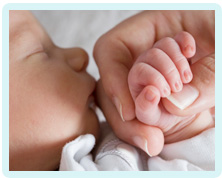
Should Doctors Warn Of Vaginal Birth Risks?
When a woman asks to give birth by way of caesarean section, she will be informed about all the potential risks and complications. But this is not the case for vaginal deliveries, meaning many commence labour unaware of the dangers they face.
Some medical experts and patients have called for this to change, saying that unless a woman is given all the information available, she cannot make an informed choice about her mode of delivery.
Risks of vaginal birth
If a patient has a complicated obstetric history or additional health complications, a C-section may be considered the safer option. But generally, the average patient will be told that a vaginal delivery is safer than a caesarean section, which carries risks such as infection and blood clots.
Nevertheless, vaginal births have risks too. For instance, the mother is at risk of suffering pelvic floor injuries that lead to a prolapse, and a perineal tear that causes faecal incontinence. The baby is also at risk of shoulder dystocia and oxygen deprivation.
There are certain factors that increase the likelihood of risks occurring. For instance, the older a woman is when she gives birth, the greater the risk of her sustaining pelvic floor injury. Additionally, women are more likely to experience a severe perineal tear if they are diabetic, have a very large baby or are having their first vaginal delivery.
Should you be warned of these risks?
Most expectant mothers are urged to have a vaginal birth, but are not told about the potential risks. Scientist Hans Peter Dietz argues this is wrong, saying women have the right to know. He highlights the fact that surgical patients are warned of risks that have a 1 in 1,000 chance of happening, but women are not warned about perineal tears, even though the risk of a perineal tear is much higher.
Dietz states that the mode of delivery should ultimately be chosen by the patient, and that unless she is given all the information, this decision cannot be properly made. The Royal College of Obstetricians and Gynaecologists has listened to this argument and is considering whether or not to issue a leaflet about the risks of vaginal births – similar to the one that has already been published regarding caesarean sections.
However, natural birth campaigners are against this idea, saying it could lead to an increase in C-sections when a vaginal birth would have been safer.
Expert legal advice
If you were not told about the risks of a vaginal birth, causing you or your baby to suffer harm, you might want to talk to a solicitor about the care you received. If so, contact us at Glynns Solicitors.
Speak to a solicitor
If you would like to speak to a solicitor regarding a potential case of medical negligence, please get in touch with us today.
Please call us on 0800 234 3300 (or from a mobile 01275 334030) or complete our Online Enquiry Form.



